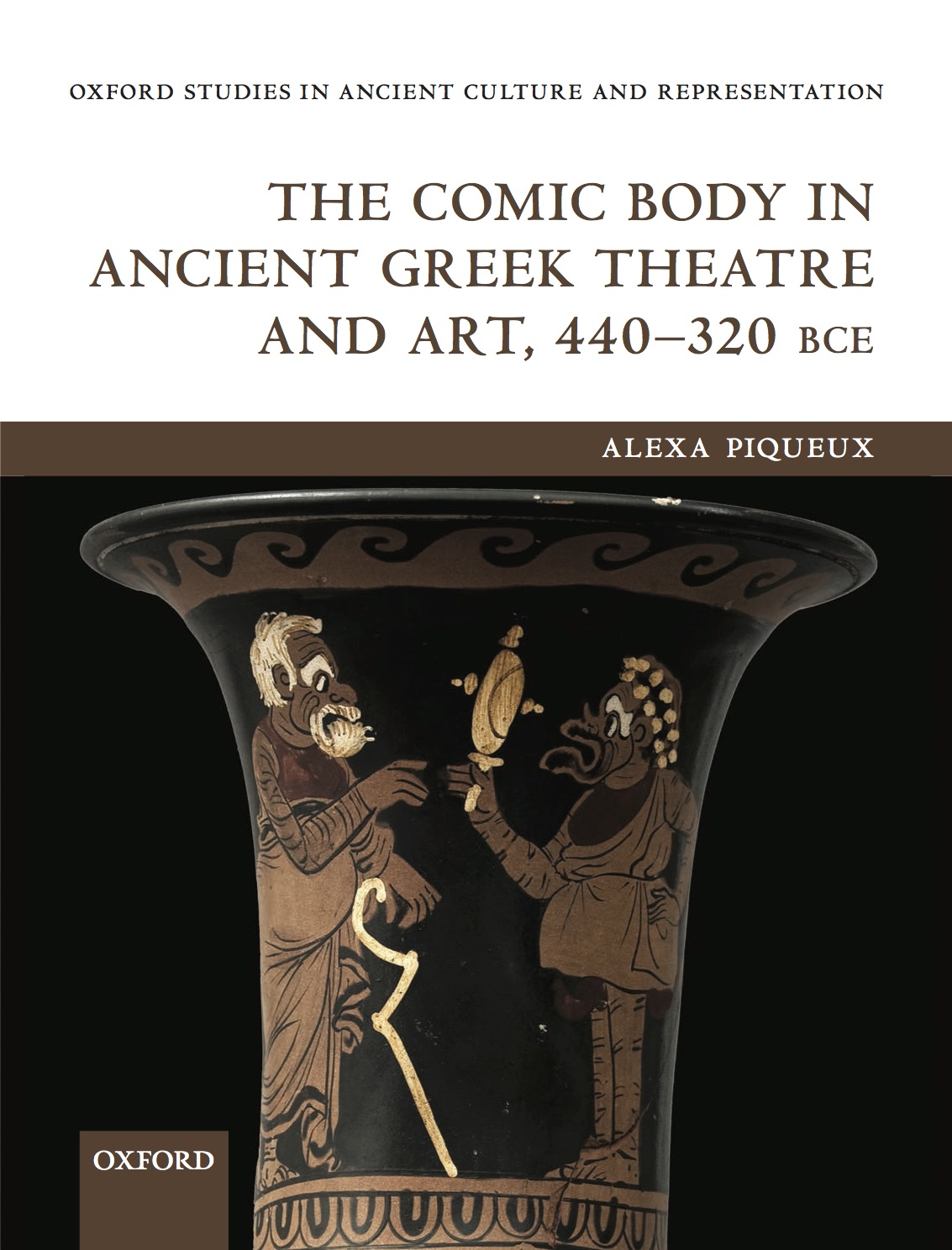The Comic Body in Ancient Greek Theatre and Art
Publié le 14 septembre 2022
–
Mis à jour le 22 mars 2023

Alexa Piqueux, Maître de conférences en langue et littérature grecques, a publié un ouvrage sur la représentation du corps dans la comédie grecque ancienne et moyenne.
L'ouvrage, issu de sa thèse de doctorat, s'intitule The Comic Body in Ancient Greek Theatre and Art, 440-320 BCE. Il a été publié en juillet 2022 aux Presses universitaires d'Oxford (collection Oxford studies in ancient culture and representation). Pour en savoir plus sur le volume, cliquer ici.
Abstract: Using both textual and iconographic sources, this richly illustrated book examines the representations of the body in Greek Old and Middle Comedy, how it was staged, perceived, and imagined, particularly in Athens, Magna Graecia, and Sicily. The study also aims to refine knowledge of the various connections between Attic comedy and comic vases from South Italy and Sicily (the so-called 'phlyax vases').
After introducing comic texts and comedy-related vase-paintings in the regional contexts, The Comic Body in Ancient Greek Theatre and Art, 440-320 BCE considers the generic features of the comic body, characterized as it is by a specific ugliness and a constant motion. It also explores how costumes —masks, padding, phallus, clothing, accessories— and gestures contribute to the characters' visual identity in relation with speech : it analyzes the cultural, social, aesthetic, and theatrical conventions by which spectators decipher the body. This study thus leads to a re-examination of the modalities of comic mimesis, in particular when addressing sexual codes in cross-dressing scenes which reveal the artifice of the fictional body. It also sheds light on how comic poets make use of the scenic or imaginary representations of the bodies of those who are targets of political, social, or intellectual satire. There is a particular emphasis on body movements, where the book not only deals with body language and the dramatic function of comic gesture, but also with how words confer a kind of poetic and unreal motion to the body.
Abstract: Using both textual and iconographic sources, this richly illustrated book examines the representations of the body in Greek Old and Middle Comedy, how it was staged, perceived, and imagined, particularly in Athens, Magna Graecia, and Sicily. The study also aims to refine knowledge of the various connections between Attic comedy and comic vases from South Italy and Sicily (the so-called 'phlyax vases').
After introducing comic texts and comedy-related vase-paintings in the regional contexts, The Comic Body in Ancient Greek Theatre and Art, 440-320 BCE considers the generic features of the comic body, characterized as it is by a specific ugliness and a constant motion. It also explores how costumes —masks, padding, phallus, clothing, accessories— and gestures contribute to the characters' visual identity in relation with speech : it analyzes the cultural, social, aesthetic, and theatrical conventions by which spectators decipher the body. This study thus leads to a re-examination of the modalities of comic mimesis, in particular when addressing sexual codes in cross-dressing scenes which reveal the artifice of the fictional body. It also sheds light on how comic poets make use of the scenic or imaginary representations of the bodies of those who are targets of political, social, or intellectual satire. There is a particular emphasis on body movements, where the book not only deals with body language and the dramatic function of comic gesture, but also with how words confer a kind of poetic and unreal motion to the body.
Mis à jour le 22 mars 2023







